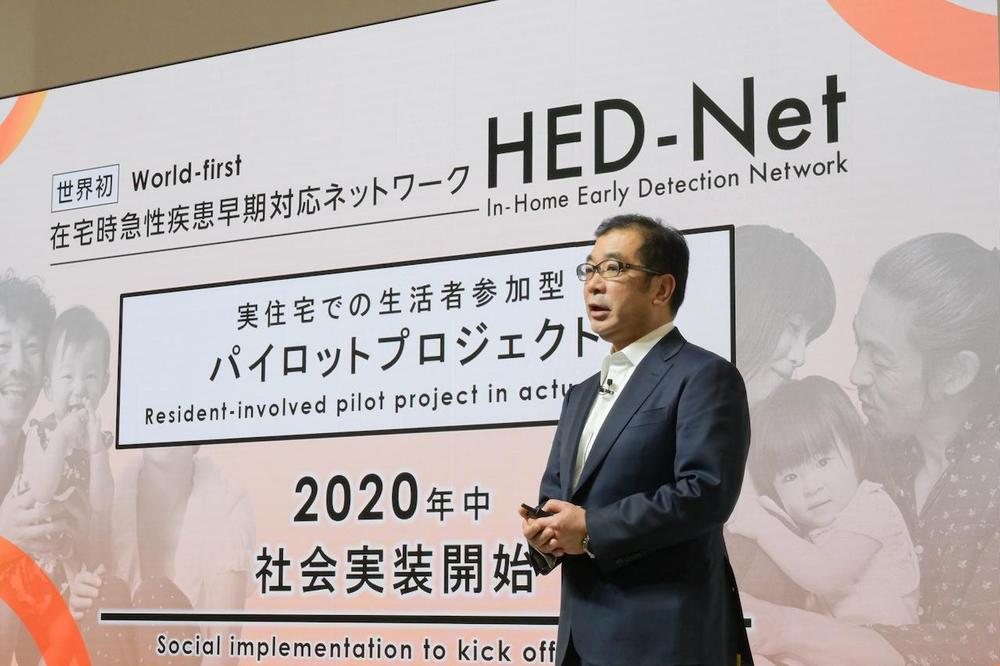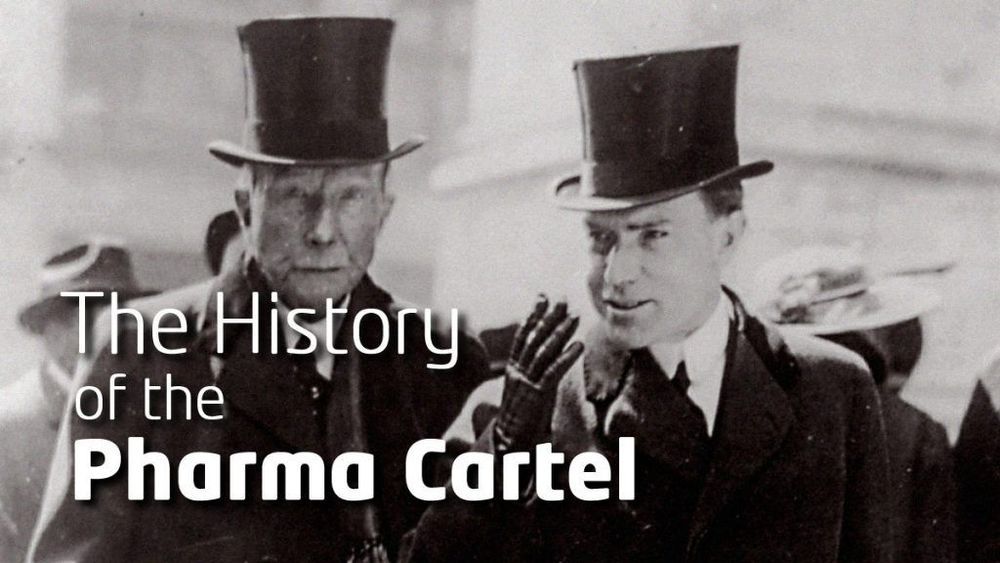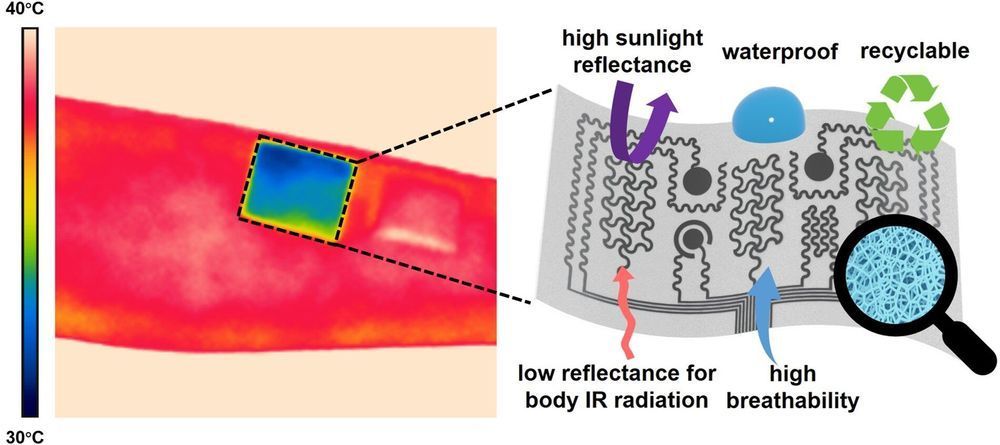Archive for the ‘health’ category: Page 273
Jan 16, 2020
This New Sensor Could Start Pushing Smart Home Technology From ‘Nice To Have’ To ‘Must Have’
Posted by Genevieve Klien in categories: habitats, health
Sekisui House has upped its ante in a potentially game-changing, life-altering home health technology at this year’s CES.
Jan 16, 2020
Cuba found to be the most sustainably developed country in the world
Posted by Brent Ellman in categories: economics, education, health, sustainability
Cuba is the most sustainably developed country in the world, according to a new report launched on November 29. The socialist island outperforms advanced capitalist countries including Britain and the United States, which has subjected Cuba to a punitive six-decades-long economic blockade. The Sustainable Development Index (SDI), designed by anthropologist and author Dr Jason Hickel, calculates its results by dividing a nation’s “human development” score, obtained by looking at statistics on life expectancy, health and education, by its “ecological overshoot”, the extent to which the per capita carbon footprint exceeds Earth’s natural limits. [block: views=node_blocks-related].
Jan 15, 2020
The History of the Pharma Cartel
Posted by Paul Battista in categories: biotech/medical, business, health
The Supreme Court of the U.S. finds John Rockefeller and his Trust guilty of corruption, illegal business practices and racketeering. As a result of this decision, the entire Rockefeller Standard Oil-Trust, the world’s largest corporation of its time, was sentenced to be dismantled. But Rockefeller was already above the Supreme Court and did not care about this decision.
In order to disperse public and political pressure on him and other robber-barons, Rockefeller uses a trick called “philanthropy”, whereby the illegal gains from his robber-practices in the oil business are used to launch the Rockefeller Foundation. This tax haven was used to strategically take over the health care sector in the U.S…
The Rockefeller Foundation was the front organization for a new global business venture of Rockefeller and his accomplices. This new venture was called the pharmaceutical investment business. Donations from the Rockefeller Foundation went only to medical schools and hospitals. These institutions had become missionaries of a new breed of companies: the manufacturers of patented, synthetic drugs.
Jan 15, 2020
Healthy lifestyle habits at middle age may increase years lived free of chronic diseases
Posted by Steve Hill in categories: biotech/medical, food, health
Maintaining five healthy habits—eating a healthy diet, exercising regularly, keeping a healthy body weight, not drinking too much alcohol, and not smoking—at middle-age may increase years lived free of type 2 diabetes, cardiovascular disease, and cancer, according to a new study led by Harvard T.H. Chan School of Public Health.
People who practice healthy habits at age 50 lived more years free of chronic diseases compared to those who did not practice any of these habits. Women who practiced all five habits gained about ten years of disease-free life, and men who did so gained about eight years. A healthy lifestyle not only improves lifespan (overall life expectancy) but also healthspan (healthy or disease-free life expectancy).
Jan 15, 2020
National Bio and Agro-Defense Facility
Posted by Brent Ellman in categories: biotech/medical, food, habitats, health, security, space
Location: Manhattan, KS

The National Bio and Agro-Defense Facility (NBAF) will be a state-of-the-art biocontainment laboratory for the study of diseases that threaten both America’s animal agricultural industry and public health. DHS S&T is building the facility to standards that fulfill the mission needs of the U.S. Department of Agriculture (USDA) which will own, manage and operate (PDF, 16 pgs., 165 KB) the NBAF once construction and commissioning activities are complete. The NBAF will strengthen our nation’s ability to conduct research, develop vaccines, diagnose emerging diseases, and train veterinarians. DHS S&T will leverage the facility as a national asset to fulfill homeland security mission needs.
Jan 15, 2020
Art therapy is finally being taken seriously as a tool for boosting health
Posted by Quinn Sena in category: health
In the past two decades, scientists have also starting looking at art as a way to keep people mentally and physically healthy. In a report, the World Health Organization points to just how powerful art can be as a therapy. The report has problems but could lend heft and credibility to the field.
Jan 13, 2020
Could A Pill Replace Exercise? Scientists Discover Protein Mimics Effects Of Working Out
Posted by Roderick Reilly in categories: biotech/medical, health
ANN ARBOR, Mich. — Given the option, would you avoid the gym altogether and simply pop a pill or drink a supplement that brings about the same benefits as a workout? It sounds farfetched, but the idea of lounging around all day yet still enjoying the health benefits of an intense workout may soon be possible. While there are still many details to be worked out, researchers at the University of Michigan say that the naturally occurring protein Sestrin appears to mimic the effects of exercise on both flies and mice in experimental trials.
These findings could have far reaching implications across the fitness, medical, and scientific fields. For instance, Sestrin could conceivably help individuals unable to work out due to old age or health problems maintain their muscles.
“Researchers have previously observed that Sestrin accumulates in muscle following exercise,” explains Myungjin Kim, Ph.D., a research assistant professor in the Department of Molecular & Integrative Physiology, in a release.
Jan 12, 2020
Engineers design on-skin electronic device providing a personal air conditioner without needing electricity
Posted by Shane Hinshaw in categories: biotech/medical, health, military, wearables
One day, soldiers could cool down on the military battlefield—preventing heat stroke or exhaustion—by using “wearable air conditioning,” an on-skin device designed by engineers at the University of Missouri. The device includes numerous human health care applications such as the ability to monitor blood pressure, electrical activity of the heart and the level of skin hydration.
The findings are detailed in the journal Proceedings of the National Academy of Sciences.
Unlike similar products in use today or other related concepts, this breathable and waterproof device can deliver personal air conditioning to a human body through a process called passive cooling. Passive cooling does not utilize electricity, such as a fan or pump, which researchers believe allows for minimal discomfort to the user.
Jan 11, 2020
Insulin made from egg yolk promises cheaper treatment for diabetics
Posted by Genevieve Klien in categories: bioengineering, biotech/medical, health, neuroscience
The insulin pumps diabetics currently rely on do a great job of delivering the hormone as needed, but need regular replacing due to what are known as fibrils. These form over a day or two as insulin compounds accumulate into clumps and create the risk of blockages, but scientists in Australia have engineered what they say is a safer alternative, with egg yolks serving as their starting point.
The formation of fibrils means that diabetics need to replace their insulin pumps every 24 to 72 hours to avoid the risk of dangerous blockages, which bring with them a risk of life-threatening under-dosing. Beyond the dangers to the patient’s well-being, the need to regularly replace the pump increases the workload needed to manage their disease and means that portions of the medicine often go to waste.
So, there is considerable interest in developing synthetic insulin that doesn’t behave in this way. Researchers at Melbourne’s Florey Institute of Neuroscience and Mental Health approached this problem through a new technique it developed with scientists in Japan, whereby the insulin is engineered from egg yolks to allow for greater freedom over the final design.

















